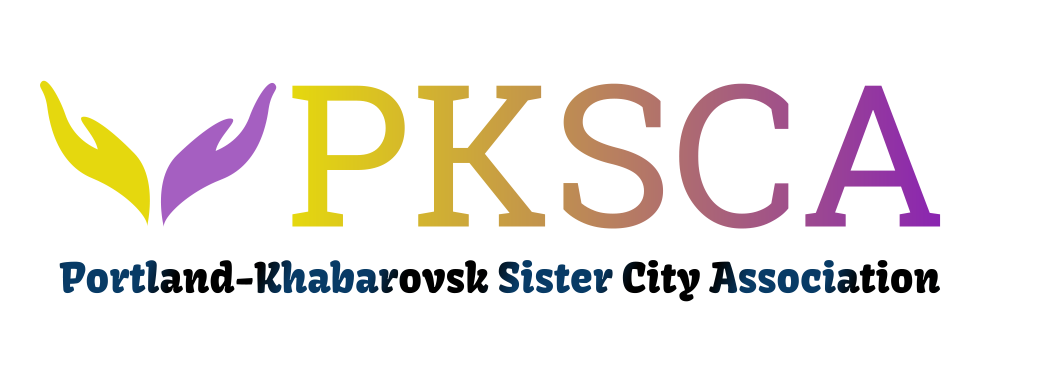This Commentary first appeared in The Oregonian on Sunday June 13, 2022.
Earlier this month, Ukrainian President Volodymyr Zelensky called out several U.S. cities, including Portland, for not severing ties with their respective Russian Federation sister cities (“Portland should break sister-city tie with Russian city, Ukraine’s president tells mayors,” June 4). The city of Portland formalized its relationship with Khabarovsk, located in the Russian Far East, in 1988. The relationship is rooted in citizen-to-citizen exchanges dating back to the height of the Cold War as part of the Ground Zero Pairing Project led by former Portland State University professor Earl Molander.
Given President Zelensky’s criticism that continuing our formal relationship with Khabarovsk only serves to “allow Russia to say that it is not isolated,” we want to provide some insight into why the Portland Khabarovsk Sister City Association’s board of directors feels that this longstanding relationship should continue. While we unreservedly support the people of Ukraine in their fight for self-determination and liberal democracy, we also want to encourage the signs of political reform that we see emerging in Khabarovsk.
Our association is a not-for-profit organization operating under a city ordinance that requires it to be both financially independent of the city and accountable to the mayor of Portland. In the 34 years since Portland and Khabarovsk became sister cities they have engaged in many ways. Youth exchanges bring an expanded world view to every participating household. Environmental projects have culminated in the adoption of Portland-area technologies in Khabarovsk. Academic exchanges between Portland State University and corresponding universities in Khabarovsk, Sakhalin and Blagoveshchensk have engendered a greater appreciation of western business norms. And artistic exchanges, most recently the Jazz Bridge Project led by Darrell Grant, have promoted a broad sense of goodwill between our two communities.
The Portland-Khabarovsk relationship emphasizes person-to-person interactions, rather than commercial connections. We believe the bond created among individuals helps support Dr. Molander’s original vision. As he told the New York Times in 1983, in discussing relationships with the then Soviet Union, “We decided that if we brought the focus of people’s attention to specific Soviet cities there’d be more incentive to learn about the Soviet people, and that we’d make a contribution to the reduction of polarization.”
Before Russian forces invaded Ukraine in late February, we had exchanged emails with our colleagues in Khabarovsk regarding our interest in sending representatives to participate in their annual Day of the City celebration in late May. Unfortunately, that did not come to pass. Russia’s federal administration did not issue the formal invitation required for us to obtain a visa. And since the invasion, we have not heard anything from Khabarovsk city officials. Our belief is that Khabarovsk intends to continue our relationship.
It’s important to note that Khabarovsk has had its own conflicts with the Kremlin. In 2018, 70% of Khabarovsk voters elected Sergei Furgal as territorial governor, selecting him over the candidate from President Putin’s United Russia party. Two years later, Furgal was arrested by Russian police and the Kremlin unilaterally installed a United Russia party member in his place. The arrest, viewed by many as politically motivated, prompted thousands of Khabarovsk protesters to take to the streets for several days. Khabarovsk was subsequently stripped of its status as the center of federal governance in the Russian Far East.
We know from historical context how dangerous it can be to stand against the dominant, government sponsored narrative. Even so, we have seen statements from those we know in Khabarovsk in which they begin to speak out against the aggression in Ukraine. We would not help our friends by further isolating them as individuals. We will not throw away a prospective opportunity to buttress the foundations of political reform that we see emerging throughout the Russian Far East.
As of Friday, when this op-ed goes to print, our association is preparing for a joint appearance with other sister city associations as part of the Rose Festival Grand Floral Parade. The Russian Federation may very well see the sister city relationship as having propaganda value, as President Zelensky said. But we know that Portland’s continued relationship with Khabarovsk runs contrary to the Russian Federation narrative that the United States is the enemy of the Russian people. For that reason and others we will continue to be there, even if “there” is on a float in Portland’s Grand Floral Parade.


